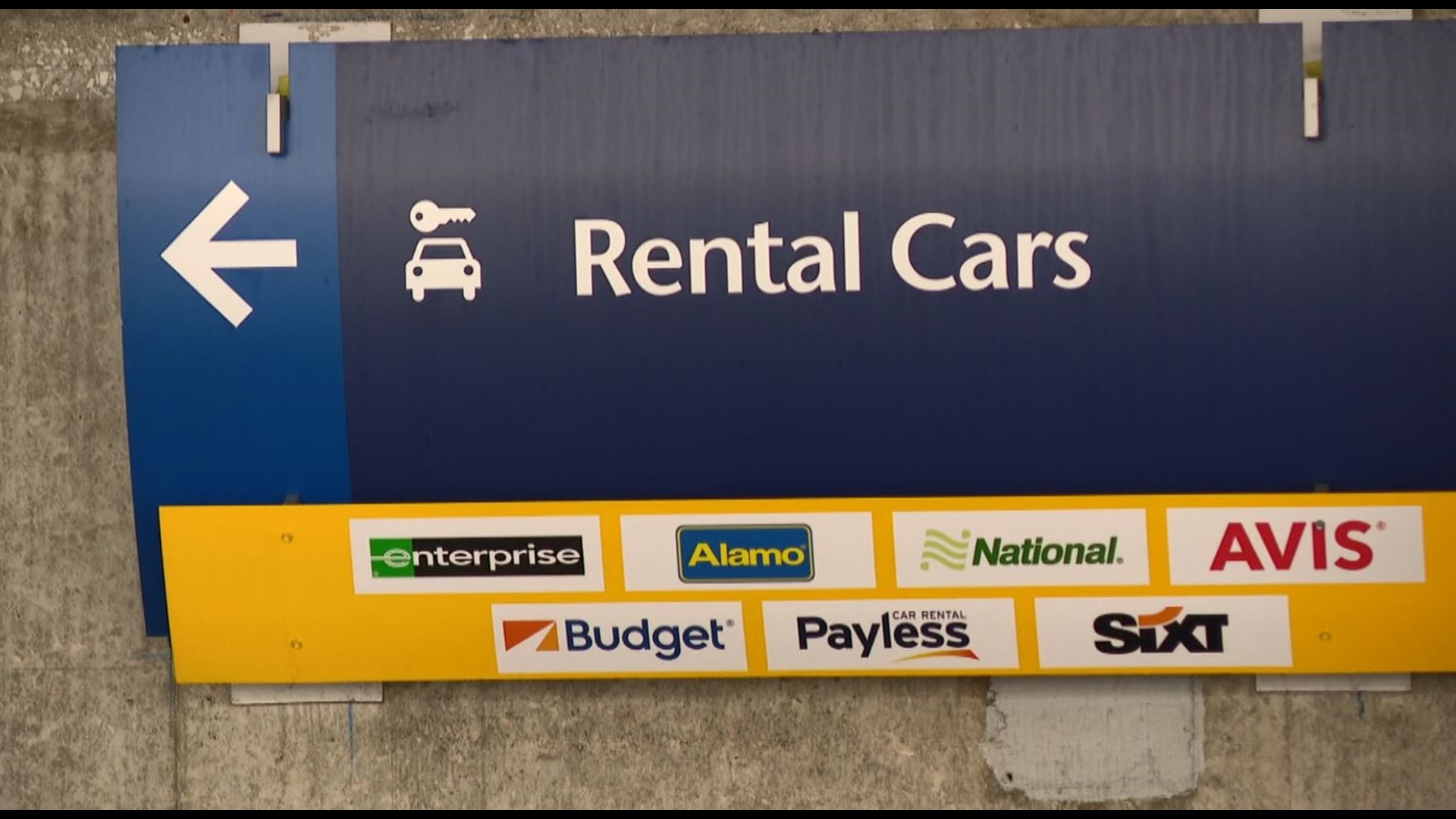Planning an adventure or even a business trip? Getting around easily can make all the difference, but rental car prices don’t have to break the bank. The key to a smooth ride at a stellar price is knowing a few insider tips and tricks. With a little foresight, you can find the lowest prices possible for your travel needs.
Imagine cruising down scenic routes without worrying about high costs. From timing your reservation perfectly to picking the right rental company, there are plenty of strategies to keep more money in your pocket. Whether you need a compact vehicle for a quick trip or a larger SUV for a family vacation, being savvy about your rental choices can save you significantly.
Ready to unlock your next driving adventure and enjoy the freedom of the open road? Let’s dive into how you can snag the best deals for your upcoming journey.
How to Find the Best Deals on Rental Cars
Start by booking early. Prices usually soar as your travel dates get closer, so grab that deal while it’s hot. Compare rates on different websites; don’t just settle for the first one you see. Websites like Kayak, Expedia, and even the rental companies’ own sites can offer drastically different prices for booking cheap car rentals.
Timing is Everything
Consider off-peak times to get better rates. Avoid renting during holidays and weekends when prices hit their peak. Midweek rentals are often significantly cheaper, so tweak your schedule if you can. If you’ve got flexibility, you have a much better chance of finding lower prices.
Membership perks can also save you cash. Belong to an auto club like AAA or have a credit card that offers car rental discounts? Use those benefits! A little research on your existing memberships can unlock unexpected savings.
Don’t forget to look for coupon codes and special promotions. Websites such as RetailMeNot or Honey often have discounts that can be applied at checkout. It only takes a couple of minutes and can lead to substantial savings. Many rental services may also provide occasional promos on their own sites.
And finally, think about the vehicle size. Do you really need that luxury SUV, or will a compact car do the trick? Smaller cars usually come with smaller price tags and better fuel efficiency, making them a budget-friendly choice if you’re not traveling with a large group.
By following these smart strategies, you’ll be well on your way to finding the best deals and enjoying a budget-friendly trip!
Maximizing Discounts with Rental Car Coupons and Promo Codes
First things first, always check for promo codes before booking. Websites like RetailMeNot, Honey, and Slickdeals offer a treasure trove of codes that could save you a bundle. Simply enter these codes at checkout and watch the price drop.
Sign up for email newsletters from rental car companies. They often send exclusive discounts and promotions directly to your inbox. It’s a free and easy way to stay in the loop about deals you won’t find elsewhere and to be informed about cheap travel insurance options as well.
Another smart tip is to use cashback websites like Rakuten or TopCashback. When you book through their portals, you can earn a percentage of your purchase back, which adds up, especially for longer rentals. Always consider these options to maximize your savings!
Don’t forget about travel aggregators. Websites like Expedia or Priceline sometimes have their own set of promo codes. These can stack on top of existing discounts, giving you double the savings. It’s worth checking all possibilities before finalizing your booking.
Lastly, always read the fine print. Some promo codes have restrictions, like minimum rental periods or specific vehicle categories. Make sure your code applies to your booking to avoid any surprises at checkout.
With these simple steps, you can shave serious dollars off your rental car bill and keep more cash in your pocket for the fun stuff, like your next Vrbo booking!
Strategies for Booking Rental Cars in Advance
One of the best things you can do to snag a good deal is to book your rental car as early as possible. Car rental prices tend to increase as your travel date approaches, so locking in a rate weeks or even months ahead can save you a significant amount of money. The sooner you secure your reservation, the better your chances of avoiding price hikes.
Always compare rates across multiple platforms before committing. Websites like Kayak, Skyscanner, and Rentalcars.com let you compare prices from various rental companies, helping you find the lowest rate without the legwork. This step is crucial for making sure you’re getting the best possible deal.
Another pro tip: choose a “pay later” option, if available. This gives you the flexibility to cancel or change your reservation without a fee. Plus, if prices drop after you book, you can always rebook at the lower rate, ensuring that you don’t miss out on potential savings.
If your travel plans are firm, consider prepaying for your rental. Many companies offer substantial discounts for prepaid bookings, although this option usually comes with stricter cancellation policies. Weigh the pros and cons based on your travel needs and stability of plans.
Keep an eye out for price alerts. Websites like AutoSlash allow you to set price alerts for your desired dates and car type. They’ll notify you if the price drops, ensuring you always get the best deal available. Being proactive about pricing can make a significant difference in your overall cost.
Lastly, don’t forget to verify your reservation a few days before your trip. Double-checking ensures there are no surprises or last-minute changes, making for a smoother pick-up experience and a hassle-free start to your travels.

Comparing Rental Car Companies to Secure the Lowest Rates
When you’re on the hunt for the lowest rental car rates, it’s essential to compare options from multiple companies. Each company has its own pricing model, so a bit of research can lead to substantial savings. By checking different sources, you can uncover the best deals available.
Start with well-known comparison websites like Expedia, Travelocity, and Orbitz. These platforms not only show you prices from various providers but also let you filter by car type, rental location, and additional options like insurance coverage.
Don’t overlook smaller, local rental companies. These often have competitive rates and may not show up on major comparison websites. A quick Google search for local options can lead to affordable choices that suit your needs perfectly.
Loyalty programs can also play a crucial role in securing lower rates. If you frequently rent cars, consider joining loyalty programs from companies like Hertz, Avis, or Enterprise. Joining these programs often offers members-exclusive discounts and perks like free upgrades, enhancing your rental experience.
Price-matching is another strategy to consider. Some rental companies will match a competitor’s lower rate if you present them with proof. It doesn’t hurt to ask, and it could mean saving money on your next rental.
Lastly, read reviews and ratings from previous customers. A lower price isn’t always a better deal if it comes with poor service or hidden fees. Websites like TripAdvisor and Yelp can provide invaluable insights from real users, ensuring you choose a service that meets your expectations.
Exclusive Tips for Hidden Rental Car Savings
There are several insider tricks to help you unearth hidden savings on rental cars. One lesser-known strategy is to book a car for a slightly longer period than you need. Sometimes extending your rental by a day or two can reduce the daily rate, ultimately saving you money overall.
If you’re flying, consider off-airport rental locations. Airport rentals often include extra fees and taxes that can inflate your total. A short shuttle or taxi ride to an off-airport location could significantly cut those costs and often comes with better pricing.
Utilize Membership Discounts
Leverage any memberships you might have. Organizations like AAA, AARP, and even wholesale clubs like Costco often offer rental car discounts. These savings can be substantial, so check these memberships first before booking to maximize your budget.
Avoid prepaid gas arrangements. They might sound convenient, but they’re usually not cost-effective. Instead, fill up the tank yourself before returning the car—just make sure to use a gas station close to the drop-off point to avoid excessive refueling charges.
Be on the lookout for coupon codes and special promotions. Websites like RetailMeNot or Honey can help you find discounts you weren’t aware of. Even a quick search for “coupon code” can yield surprising results that could save you money.
Finally, always inspect the car before driving off. Take photos or video of any existing damage and report it immediately. Documenting this can help you avoid unexpected charges when you return the vehicle.
Understanding Rental Car Insurance Costs
Navigating rental car insurance can feel like trying to solve a tricky puzzle. Each company will offer various types of insurance, and knowing what you need can save you a bundle. Be sure to explore the options before making a decision.
Types of Insurance Coverage
First, there’s the Collision Damage Waiver (CDW) or Loss Damage Waiver (LDW). This isn’t technically insurance, but it waives your financial responsibility if the car gets damaged or stolen. It’s often pricey, so check your own auto insurance policy or credit card benefits first—many already include rental car coverage, which can help you avoid extraneous expenses.
Liability insurance is another common offering. This coverage protects you against damages you might cause to other vehicles or property. Again, your personal auto insurance or even your home insurance might offer this coverage, so double-check before you purchase additional plans.
Then there’s Personal Accident Insurance (PAI), which covers medical costs for you and your passengers after an accident. This is often unnecessary if you have good health insurance that would cover such situations. Similarly, Personal Effects Coverage (PEC) covers your belongings if they’re stolen from the car. Your renters or homeowners insurance might already extend this protection to items taken from your rental car, potentially saving you from purchasing extra coverage.
Should You Always Buy Rental Car Insurance?
It’s crucial to weigh the costs and benefits. Sometimes, opting for coverage provides peace of mind, especially if you’re traveling in an unfamiliar area or driving a much nicer car than you’re used to. However, don’t feel pressured to buy unnecessary coverage. Assess your existing insurance policies, and know what they cover before you get to the rental counter.
Lastly, remember to inspect the car thoroughly. Take photos to document its condition before you drive off the lot, ensuring that existing scratches or dents don’t come back to haunt you later. Making these preparations can help avoid disputes and unexpected charges upon return.
Important Considerations Before Finalizing Your Rental Car Reservation
Before you hit that “book now” button, there are a few important details to double-check to ensure you’re getting the best deal possible. These steps can save you time, money, and a lot of frustration in the long run.
First off, verify the location of the rental office to avoid inconvenient surprises. Some car rental agencies have multiple locations, including off-airport sites. Make sure your pick-up and drop-off points are convenient to avoid unnecessary shuttle rides or long commutes. Checking out your options can help you avoid added stress on travel days.
Check the fuel policy before finalizing your rental. Some companies offer a full-to-full policy, meaning you should return the car with a full tank of gas. Others might charge you for a full tank upfront and expect you to bring the car back empty. Opting for the full-to-full policy is usually more cost-effective, so keep an eye out for that option to make the most of your fuel costs.
Next, read the fine print on mileage limits. Some rentals come with unlimited mileage while others do not. If you’re planning a long road trip, those extra miles could really add up in fees, so selecting a rental with unlimited mileage can save you a significant amount.
Always review the cancellation policy before committing to a rental. Life happens, and sometimes plans change unexpectedly. Ensure the cancellation terms are flexible enough for your needs. Some companies offer free cancellation within a specific window, while others may charge a fee; knowing these details can offer peace of mind.
Finally, consider the extras you might need for your trip. Do you require a GPS, car seat, or an additional driver? These add-ons often come with extra costs, so weighing the convenience versus the price can lead to better decision-making about what’s truly necessary for your trip.
Double-check these details, and you’re well on your way to a smooth car rental experience. Keeping track of these factors not only simplifies your journey but can also lead to substantial savings. Happy driving!
Conclusion: Securing the Best Value for Your Rental Car Needs
In conclusion, renting a car might seem like a straightforward task, but taking a few extra steps can significantly pay off. By planning ahead and paying attention to the important details, you’re setting yourself up for a hassle-free and cost-effective experience.
First, always compare prices from different rental agencies. Using comparison websites or calling different companies can help you find the best deal available. Don’t forget to look out for hidden fees that could creep into the final bill, which can make a seemingly great deal much less appealing.
Additionally, consider booking early. Early reservations often come with discounts and better availability, giving you more choices and better rates. Also, joining a loyalty program or utilizing memberships like AAA can provide additional discounts and perks, which can make a big difference in your car rental costs.
It’s also crucial to examine the vehicle thoroughly before driving off the lot. Document any pre-existing damage to avoid unwanted charges upon return. And remember to understand your insurance coverage options. Sometimes your credit card or personal car insurance might offer sufficient coverage, enabling you to avoid paying for unnecessary additional protection.
Finally, read the rental agreement carefully. Make sure you’re aware of the fuel policy, mileage limits, and any other terms that could impact your experience, such as whether travel insurance is advisable under your circumstances.
By following these tips, you’ll not only save money but also ensure that your car rental experience is smooth and enjoyable. So, take a bit of extra time to do your homework, and you’ll be cruising in comfort and confidence on your next trip! Safe travels!
I’ve only scratched the surface with some travel savings tips, so make sure to explore my Ultimate Guide to Budget Travel: A comprehensive resource covering all aspects of traveling on a budget. This all-in-one resource is designed to equip you with the tools for an affordable journey.
Happy Travels!
Opa

